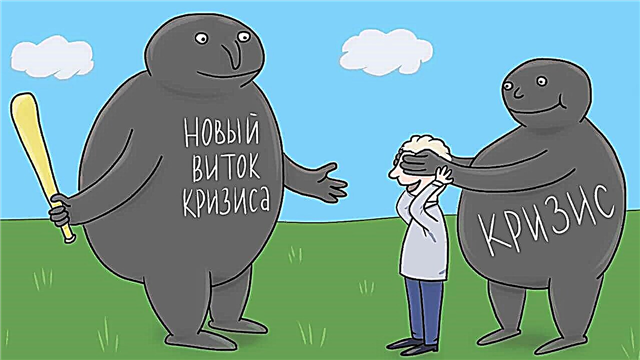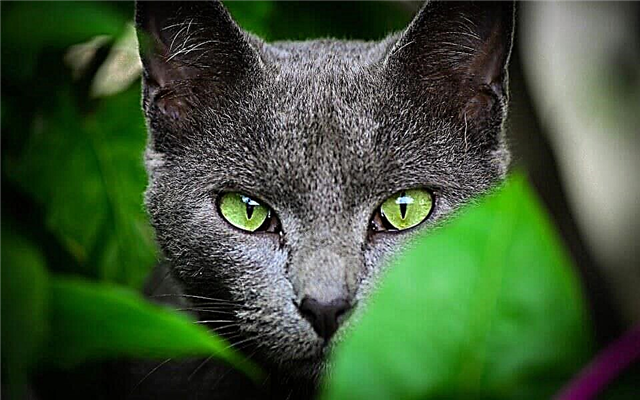Obesity is one of the main causes of health problems, so it is not surprising that almost every day a new diet appears that promises a quick result without visible effort on the part of losing weight.
Most of these diets are built according to one scheme: we take a product or several products, give them “magic power” and create a plan designed to convince people that only this type of food helps to lose weight. Such diets are difficult to follow, they have arbitrary rules and give only short-term weight loss, but most importantly: they are dangerous to health.
What is a fad diet?
 A fad diet translates as a fancy diet. Such diets include any unbalanced and unhealthy diet that promises rapid weight loss.
A fad diet translates as a fancy diet. Such diets include any unbalanced and unhealthy diet that promises rapid weight loss.
Fad diets allow you to eat only certain foods and severely limit calorie intake. They promise quick weight loss without any training. Only a few foods are allowed, which makes any fad diet unbalanced, unhealthy, harmful, and sometimes deadly. When a person sits on a fad diet, he usually burns not fat, but loses water, so fancy diets do not help in long-term weight loss.
How to recognize a fad diet?
 Fancy diets are for people who are desperate to lose weight quickly or without any training. These diets are associated with extreme dietary restrictions and are difficult to follow in the long run.
Fancy diets are for people who are desperate to lose weight quickly or without any training. These diets are associated with extreme dietary restrictions and are difficult to follow in the long run.
Following such diets can lead to side effects that are hazardous to health.
When you are faced with a description of a new diet for you, then ask the following questions:
- Does the diet promise a quick result? Something like "minus 4 kilograms per week."
- Is a diet written or advertised by a celebrity?
- Diet promises that you will lose weight without exercise?
- Does diet involve the use of strange or dangerous methods?
- Does diet suggest extreme food restrictions?
- Does the diet have a list of healthy and unhealthy foods?
- Does diet attach particular importance to the purchase of a particular product of a company?
- Do promises sound too good to be true?
If you answer most of the questions yes, then you have a fad diet.
5 most life-threatening diets in the world
1. Lemon Diet
 This diet claims that you will lose up to 9 kg in 10 days and cleanse your body of toxins. For 10 days you have to say goodbye to solid food. There are several diet options, but the most popular is the following: 4 cups of salt water every morning, 1 cup of herbal laxative tea in the evening and from 6 to 12 glasses of “lemonade” per day. “Lemonade” means a mixture of lemon juice or lime juice, maple syrup, cayenne pepper and water. Allowed to consume no more than 650 calories per day. After 10 days, a gradual return to solid food begins through soups and fruit juices.
This diet claims that you will lose up to 9 kg in 10 days and cleanse your body of toxins. For 10 days you have to say goodbye to solid food. There are several diet options, but the most popular is the following: 4 cups of salt water every morning, 1 cup of herbal laxative tea in the evening and from 6 to 12 glasses of “lemonade” per day. “Lemonade” means a mixture of lemon juice or lime juice, maple syrup, cayenne pepper and water. Allowed to consume no more than 650 calories per day. After 10 days, a gradual return to solid food begins through soups and fruit juices.
The danger of lemon diet
Ten days of fasting can be risky. The body does not receive the necessary nutrients and vitamins. In fact, you only use diuretics, so you are not losing fat, but water. Once you get back to solid food, you will gain weight back.
Side effects of the lemon diet: fatigue, nausea, dizziness, and dehydration. In addition, such low-calorie diets lead to loss of muscle mass and a decrease in metabolism, which will make it more difficult for you to lose weight in the future. And there is not a single scientific fact confirming that the lemon diet relieves the body of toxins.
2. Sleeping Beauty Diet
 If you sleep, you do not eat. This diet takes this fact to extremes, encouraging people to use sedatives to sleep all day.
If you sleep, you do not eat. This diet takes this fact to extremes, encouraging people to use sedatives to sleep all day.
The danger of sleeping beauty diet
In fact, the diet of a sleeping beauty is starvation, accompanied by muscle atrophy. Refusal of food for several days slows down the metabolism and causes dehydration. When you pump yourself sleeping pills, there is a risk that you will die in a dream. Of course, you can wake up and find that you have lost 1-2 pounds, but you can also not wake up at all.
3. Cotton Diet, or Cotton Ball Diet
 Another crazy and deadly fad diet. She gained popularity after Eddie Murphy's daughter, Bria Murphy, admitted that models, to stay skinny, eat cotton balls soaked in juice. Cotton balls are soaked in juice and eaten to curb your appetite.
Another crazy and deadly fad diet. She gained popularity after Eddie Murphy's daughter, Bria Murphy, admitted that models, to stay skinny, eat cotton balls soaked in juice. Cotton balls are soaked in juice and eaten to curb your appetite.
The danger of a cotton diet
Cotton is cloth, not food. Moreover, most cotton balls are not made from cotton, but from bleached synthetic fibers that contain toxins. Swallowing cotton balls dramatically reduces calorie intake, and side effects include malnutrition and intestinal obstruction.
4. Nicotine diet
 To increase sales, tobacco companies in the 20s advertised their products to women as a way to lose weight. The "diet" was simple: to smoke as many cigarettes as possible and eat only when you feel hungry, and this will be infrequent, since nicotine suppresses appetite. Then the diet was transformed into a “model diet”, which consisted mainly of cigarettes and water.
To increase sales, tobacco companies in the 20s advertised their products to women as a way to lose weight. The "diet" was simple: to smoke as many cigarettes as possible and eat only when you feel hungry, and this will be infrequent, since nicotine suppresses appetite. Then the diet was transformed into a “model diet”, which consisted mainly of cigarettes and water.
The danger of a nicotine diet
A study at the University of Lausanne showed a relationship between smoking and weight gain:
- smoking increases the risk of metabolic syndrome and diabetes, which increases the risk of developing cardiovascular disease;
- smoking increases insulin resistance and leads to central obesity (fat in the abdomen).
Thus, a nicotine diet increases the risk of obesity. It negatively affects blood sugar, which leads to weight gain.
Cigarette smoking causes breathing problems and lung cancer. About one in five deaths caused by heart disease is directly related to smoking.
At the same time, many people are afraid to quit smoking because they know that a side effect of quitting cigarettes is weight gain: 75% of smokers gain extra pounds when they give up nicotine. However, studies have shown that a balanced diet and exercise helps to avoid weight gain caused by giving up cigarettes.
5. Tapeworm Diet
 The diet appeared in the early 1900s, but there are still people who want to try it. For example, Chloe Kardashian announced her desire to swallow tapeworm. There is also an urban legend that Maria Kallas used the tapeworm diet.
The diet appeared in the early 1900s, but there are still people who want to try it. For example, Chloe Kardashian announced her desire to swallow tapeworm. There is also an urban legend that Maria Kallas used the tapeworm diet.
The essence of the diet: you swallow a tapeworm or capsule with tapeworm eggs and infect your body with parasites. The worm eats food that you swallow, so you do not gain weight, and when the parasite increases in size and consumes more and more nutrients, you begin to lose weight rapidly. Having achieved the desired result, you go to the hospital, where with the help of antiparasitic drugs you get rid of the tapeworm.
The danger of tapeworm diets
Tapeworm absorbs not only calories, but also all nutrients, so serious exhaustion, anemia, debilitating pain in the stomach and constant nausea and diarrhea are just some of the common side effects.
This diet is deadly because tapeworms can lay eggs in the host and migrate into the bloodstream, infecting all body tissues and causing cysts to appear in the liver, lungs, eyes, and spinal cord or brain.
And one more thing: when the parasite dies, you will gain weight back.
Conclusion
 Fad diets will not disappear. They will invent new ones, recycle old ones, and they will be sat by people whose behavior is controlled by emotions and public opinion, and not by critical thinking. People are emotional and impatient, so there will always be a temptation to try a strange diet. However, simple changes in the worldview will prevent temptation or return to the right path.
Fad diets will not disappear. They will invent new ones, recycle old ones, and they will be sat by people whose behavior is controlled by emotions and public opinion, and not by critical thinking. People are emotional and impatient, so there will always be a temptation to try a strange diet. However, simple changes in the worldview will prevent temptation or return to the right path.
- Understand that health is your main value. This in itself will save you from fad diets.
- Do not think about losing weight. Focus on burning fat and increasing muscle mass. The point is not how many kilograms you have, but what your weight consists of. Having realized this, you will begin to stay away from fad diets at an unconscious level.
- Focus on the goal of becoming healthier and stronger. You can lose weight on a diet, but no diet will make you sturdier or stronger, exercise will do it.
There is no magic diet. A true miracle is a balanced diet combined with sports and proper thinking.












